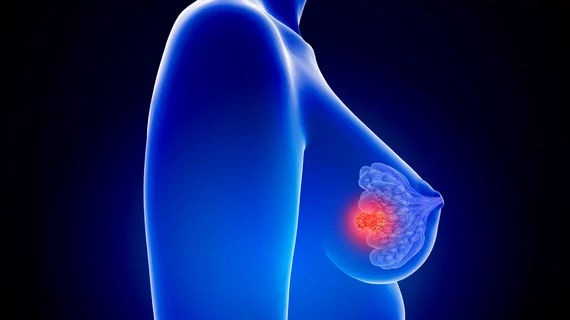AI reads mammograms to better predict breast cancer risk
A team of Swedish researchers have discovered that AI can help identify which women may be at greater risk of developing breast cancer.
The research, published Dec. 17 in Radiology, found a highly advanced deep neural network outperformed even the best breast density-based models at predicting a patient’s risk for developing cancer. It may prove to be key step toward providing more effective breast cancer screening.
"Risk prediction is an important building block of an individually adapted screening policy," lead author Karin Dembrower, MD, a breast radiologist and PhD candidate from the Karolinska Institute in Stockholm, Sweden, said in a statement. "Effective risk prediction can improve attendance and confidence in screening programs."
High breast density is a well-known risk factor for cancer, the authors wrote, but few current risk prediction models can harness the multitudes of information within mammograms. Such information may inform which women would benefit from a subsequent breast MRI, they added.
The new model was created and trained on mammograms from more than 2,000 women, gathered from 2008-2012 at Karolinska University Hospital system. A total of 278 women went on to receive a breast cancer diagnosis.
Overall, the deep neural network outperformed all density-based models, yielding a lower false-negative rate for more aggressive cancers—a known shortcoming in traditional models.
"The deep neural network overall was better than density-based models," Dembrower said. "And it did not have the same bias as the density-based model.”
Another clear benefit of this AI-based approach is that it is not limited by the subjectivity and variability inherent in human-made assessments, Manisha Bahl, MD, from Massachusetts General Hospital’s Department of Radiology, noted in a related editorial.
While Dembrower and colleagues believe their model will become more accurate with further training, Bahl questioned if such deep learning methods will ever be fully understood by humans. This, and other questions, must be explored before such AI-based approaches are adopted across radiology.
“Although such models could potentially replace existing risk prediction models, further research is needed to thoroughly validate them across mammography vendors and institutions,” Bahl wrote. “Continuing work is therefore needed to strengthen and evaluate risk models to support personalized screening and prevention strategies and ultimately reduce the burden of breast cancer.”

